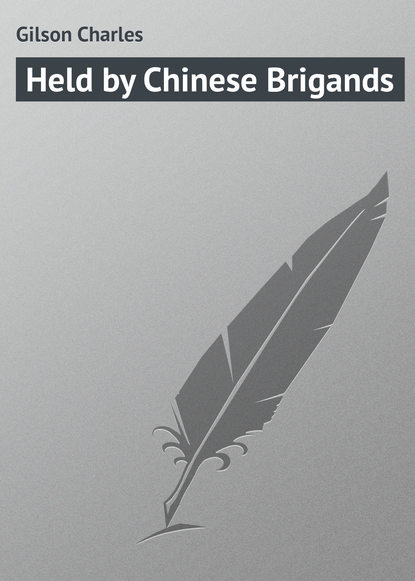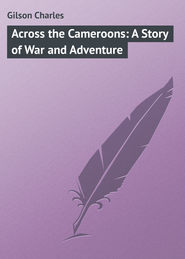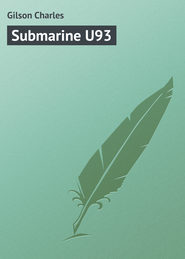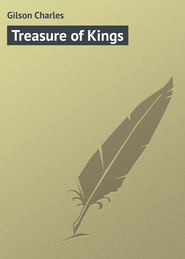По всем вопросам обращайтесь на: info@litportal.ru
(©) 2003-2025.
✖
Held by Chinese Brigands
Настройки чтения
Размер шрифта
Высота строк
Поля
"He is a brave man," said Yung How-avoiding, after the manner of the East, the point at issue.
"He fears not death," said Ah Wu. "But the day will come when he will be led to his execution, to the Potter's Yard, where they will cut off his head, and the heads of all his followers."
"How many men has he?" asked Yung How.
Ah Wu shrugged his shoulders.
"Some say twenty," said he; "some say thirty. Men-Ching, his second-in-command, is always here. He is one of my oldest patrons." Ah Wu nodded his head towards the door. "He is in there now," he added, "sound asleep. I saw him as we passed."
It is not the custom of a Chinese to convey surprise, satisfaction or displeasure, or any other emotion, upon the features of his face. Yung How's countenance remained expressionless. He did not raise an eyebrow. And yet he was delighted. He was in luck's way, and he knew it.
"What sort of a man is this Men-Ching?" he asked.
"He is an old man," said Ah Wu, "a grandfather. He wears a small grey beard, and his pigtail is almost white."
Yung How leaned across the table and whispered in Ah Wu's ear:
"I know of a party of Europeans," said he, "who are going up one of the rivers-I am not sure which. I have not yet discovered their destination. They are rich men. How much will Cheong-Chau give, do you think, if I deliver them into his hands?"
Ah Wu chuckled. Then, very carefully, he rolled another opium pill and puffed the smoke from his mouth.
"This can be arranged," said he, rising to his feet. "I will fetch Men-Ching. He returns to Pinglo to-morrow."
Ah Wu entered the opium den and, ascending the stairs, awakened a man who was sleeping upon one of the couches. This was an old man with a small grey beard and so little hair upon his head that his pigtail was not six inches long.
Men-Ching listened to Ah Wu's apologies, and then got slowly to his feet. He put on his faded scarlet coat and followed the proprietor down the stairs. In the little room below, he was introduced to Yung How, and a Chinese introduction is a serious and ceremonious occasion. For the better part of five minutes the two men paid each other compliments, which were neither the truth nor intended to be such. Then all three seated themselves at the table, and presently the smoke from three opium pipes, instead of two, was filling the room with the bitter, pungent smell.
They discussed the matter in every detail; they regarded it from every aspect. They calculated the risk and speculated upon their own share of the plunder. They tried to estimate the illimitable wealth of Mr Hennessy K. Waldron. Perhaps Ah Wu had visions of retiring from business and settling down in his native town of Chau-chau, on the banks of the Han river, where the rice is the best in China.
At all events they were three great scoundrels, and although Cheong-Chau himself may have been a greater one, there was a certain man who-even whilst they were closeted together-had entered the opium den, who was without doubt the greatest villain in all the thirteen provinces, in all that land of thieves and knaves and cut-throats, from the Great Wall of China to the Shan States, upon the borderland of Burmah.
And this man was Ling. He burst into the opium den with such violence that the outer door was in danger of being broken from its hinges. He thrust aside the embroidered curtains so roughly that several of the wooden rings that secured them at the top were broken. Once inside the room, he bellowed for Ah Wu, the proprietor of the establishment, and his voice was so great that he awakened many of the sleepers.
Being informed that Ah Wu was privately engaged, he strode into the little room beneath the stairs, and there found himself confronted by Men-Ching, whom he knew well by sight and reputation, and Yung How, whom he had never seen before.
For some moments he stood regarding the three men. Then he laughed-just as a jackal laughs.
"What's this?" he cried. "Three such heads were never brought together to discuss Confucius or the writings of the learned Lao Tzu. An old fox, Ah Wu-one of Cheong-Chau's paid assassins, and a smooth-faced Hong-Kong 'boy'! Vulgar men, all three, who breathe from their throats, and walk in fear and trembling. Fetch me a pipe, Ah Wu, and take us into your council. I have a mind to learn the reason of these whisperings."
We have said that the Oriental does not betray his innermost feelings upon his features. We have stated that the Chinese countenance is incapable of expression. The case was overstated, for all three of them, the moment they set eyes upon this self-confident intruder, became visibly alarmed. It is true that to no small extent the personal appearance of Ling may have been responsible for this.
The man was a giant. Yung How was a tall man; but when he stood at his full height, the shaven top of his head was not level with the shoulders of the new-comer, who must have been at least six feet eight inches in height. His complexion was so sallow as to be almost green; his cheeks were hollow like those of a human skull. At the same time, he had enormous features: a great hooked nose; a square, massive chin; a mouth that almost reached to his ears when he grinned. He had coal-black eyebrows which met upon the bridge of his nose, and slanted slightly upwards. Upon his upper lip was a long black moustache, the ends of which hung down below his chin. His bones were mammoth-like; he had enormous fists; and when he walked, his great shoulder-blades could be seen moving under his long blue silken robe. Ah Wu looked up at him, with the glint of fear in his little fox-like eyes.
"We were discussing the rice crop," said he.
"Liar!" roared Ling.
And he brought down his fist upon the table with such force that the opium bowls jumped, and one of the spirit-lamps went out.
"Liar!" he repeated. "Fetch me a pipe, as I bid you, and speak true talk. This is a human affair and concerns me as much as you. Were it a question of divine philosophy, I should be the last to intrude. Come, I propose to give you advice."
Thereupon, without the least warning, he seized Yung How by the scruff of his neck, and lifted him bodily out of his chair.
"This foreign devil's flunkey shall increase the wisdom of the mighty Ling," he shouted. "He shall tell me in his Hong-Kong jargon why he holds conference with one of Cheong-Chau's bandits, and one who has grown so old in wickedness, and so rich in ill-gotten gains, that his eyes are sunk in the wrinkled fat of his face."
He dumped Yung How back into his chair, and for once the habitual expression of serene dignity had departed from that gentleman's countenance. Indeed, he looked terribly frightened-but not more so than Ah Wu himself, who now came forward, holding in his trembling hand an opium pipe, which he offered politely to this gigantic Oriental swashbuckler.
Ling examined the pipe critically; and then, apparently satisfied with the appearance of it, proceeded to roll opium pills in his huge, flat-tipped fingers.
"I smoke," said he, "not like fools, to dream. I smoke to fight, to think, and to make fools of others."
As he said these words he flung off his long coat. Underneath he was wearing a thin vest of the finest Chifu silk. Around his waist was a belt, attached to which was a great knife-a Malay kris-the handle of which was studded lavishly with jewels.
CHAPTER III-OF THE TIGER AND THE FOXES
Ling was a Northerner. He hailed from the province of Honan, a land of rugged hills and dark, inhospitable valleys, through which flows the unnavigable Hoang-Ho, the turbulent Yellow River that thrashes its way into the Gulf of Pe-chili, over cataracts and rocks, through dark, precipitous ravines.
The Honanese are a warlike race. From this province the viceroys of the north were wont to recruit the majority of their soldiers-wild, raw-boned men who, in the old days, guarded the sacred presence of the Emperor.
The pirates of the West River may be compared to wolf-packs that roam the southern provinces in search of plunder. But Ling may be likened to a solitary beast of prey, a man-eating tiger, or a rogue elephant-than which there is no more dangerous beast in all the world. He lived by his wits, his great strength and cunning. He had established such a reputation for himself in the provinces of Kwang-si and Kwei-chau that he was feared alike by peasants, priests, and mandarins. He committed crime openly and gloried in it; for in China there are no police, and prefects and magistrates can be bought with silver taels.
And Ling was a man of great wealth. He employed bribery when that was likely to succeed. Otherwise he relied upon his Malay kris, or his great hands, with which he could strangle the life out of an ordinary man in no more time than it would take to wring the neck of a hen.
The wonder of this man was that he was a great scholar. He had passed several of the public examinations in which the candidates could be numbered by the thousand. He was learned in the classic books: Spring and Autumn, The Doctrine of the Mean, The Analects of Confucius, and the books of History, Rites and Music, and the Odes.
He was in the habit of quoting Confucius and the writings of the sages; and he could always, by twisting the meaning of the proverbs of antiquity, find excuses for his crimes.
"To the good I would be good," he would quote, adding: "As there are no good on this earth, there is no necessity to be other than I am."
In no other country in the world would such a man have been allowed to walk at large in the streets of a populous city. Everyone knew him, and everyone feared him; but no one had the courage to step across his path. He came and went at his pleasure, laughing in his loud, boisterous manner, quoting from the writings of Confucius, Mencius, and the learned Lao Tzu, the founder of the Taoist religion. It must be remembered that China is a country in which everyone minds his own affairs. The sages have taught the Chinese to believe that the destiny of every man is in his own hands, and that whether he lives foolishly or wisely, whether he does evil or good, is a question solely between that man himself and the Spirit of the Universe. No one has the right to interfere.
In this world there are those who talk and those who act. Ling did both. He bullied and threatened and stormed; he was childishly vain of his learning, and in seven dialects he scattered his knowledge broadcast. At the same time, he was a man of action; he was resolute and brave, and without scruples or a sense of pity.
But neither courage nor brute strength nor wisdom, nor a combination of the three, can accomplish all things. And in Ah Wu's opium den, the mighty Ling found himself in the presence of three subtle, smooth-tongued Cantonese; and the whole world across, from San Francisco to Yokohama by way of Port Said, there is no more capable and fluent liar than the lemon-skinned, almond-eyed Chinese who hails from the province of Kwang-si. It is difficult to say who could lie most gracefully, who was the greatest hypocrite-Ah Wu, Yung How, or Men-Ching, the brigand. Each in his own way was a past master in the craft of falsehood.
Moreover, they had no intention of taking Ling into their confidence. They may have been frightened of the man, but not even fear could make them behave like imbeciles. They knew that if Ling gained knowledge of the presence of Mr Hennessy K. Waldron upon the upper reaches of one of the rivers, there would be but little booty left for themselves. And so they lied-gracefully, easily, pleasantly, and with admirable consistency.
What that lie was is immaterial to the skein and texture of this story. It was a presentable and passable falsehood, you may be sure, but it was not good enough to deceive Ling, who, however, professed that he believed every word they had told him, whilst he complacently smoked pipe after pipe of opium-at Ah Wu's expense.
And then he left the opium den, paying for nothing, quoting from Mencius in regard to the virtue of hospitality. In the dark streets of the mammoth city his colossal figure became lost in the shadows; but he left behind him, in the opium den, in the little room beneath the stairs, an atmosphere of tension-a feeling that a great typhoon has passed, which by a miracle had caused but little damage. The three conspirators continued to discuss their plot, but they were no longer conscious of a sense of security. Once or twice Ah Wu, who was the most nervous of the three, glanced anxiously over his shoulder, whenever a heavy footstep was heard in the room beyond.
They had lied to Ling to the best of their ability-which was saying much. For all that, they had no reason to suppose that the gigantic Honanese had believed a single word of what they had told him. In consequence, they feared him all the more. The tiger was on the prowl, and the three foxes, their heads close together, whispered in the ears of one another and rolled their little pills.
They arranged matters to their satisfaction. Yung How was to attempt to discover the destination of Sir Thomas Armitage and the wealthy American. Men-Ching would lie in wait upon the river bank. Yung How would signal to him as the launch went by. If their destination was the North River, Yung How was to place his left hand upon the shaven fore-part of his head. If it was the West River, he was to raise his right hand. In either case, Men-Ching was to take horse and ride to Pinglo, where he would inform Cheong-Chau that the fish were swimming into his net. As for Ah Wu, at a later date, he was to play a certain part for which-on account of his cunning and secretive nature-he was eminently suited.
It was an exceedingly well-arranged plot, which will be duly explained in the appointed place. There was some discussion in regard to what sum it would be possible to obtain; but in the end it was decided that twenty thousand dollars would be sufficient, allowing that Cheong-Chau would take the bulk of it himself.
It was long past midnight when they came to the end of their deliberations. By then they were heavy with opium, and their eyes glazed from the drug. They threw themselves down upon the soft matted couches in the outer room, and slept and dreamed-as Chinese will-of things celestial, transcendental, such as cannot be expressed in words. For all that, the following morning Yung How presented himself at the breakfast-table of Sir Thomas Armitage in the Shamien Hotel.









